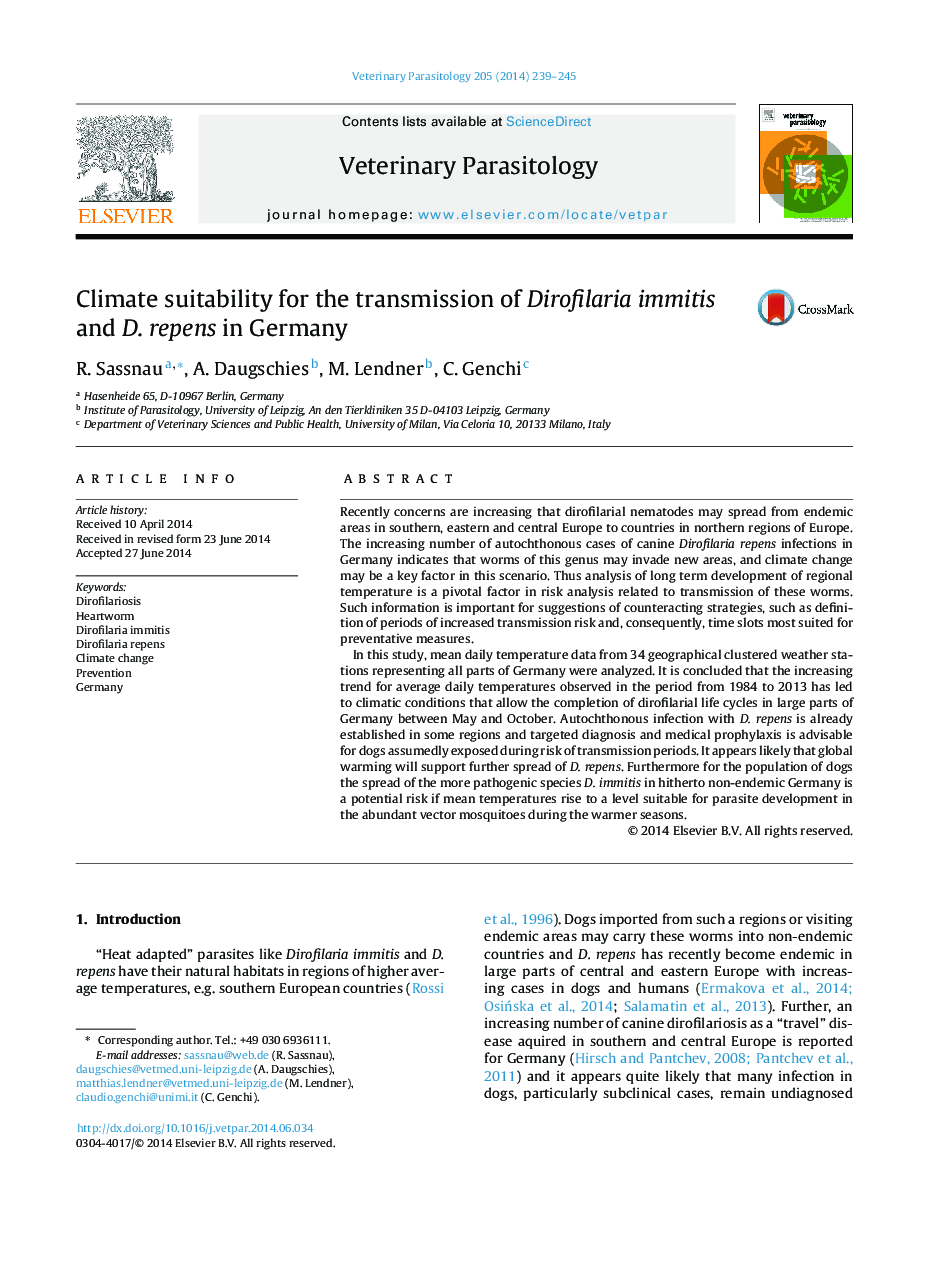| کد مقاله | کد نشریه | سال انتشار | مقاله انگلیسی | نسخه تمام متن |
|---|---|---|---|---|
| 5803220 | 1555681 | 2014 | 7 صفحه PDF | دانلود رایگان |

- Regional temperature is a pivotal factor in risk analysis related to transmission of Dirofilarioses.
- Mosquitoes could be infected from the beginning of May up to early September in large parts of Germany.
- These zoonoses cannot be longer seen as imported diseases of dogs in Germany only.
- Appropriate prevention may be of particular importance in the future.
Recently concerns are increasing that dirofilarial nematodes may spread from endemic areas in southern, eastern and central Europe to countries in northern regions of Europe. The increasing number of autochthonous cases of canine Dirofilaria repens infections in Germany indicates that worms of this genus may invade new areas, and climate change may be a key factor in this scenario. Thus analysis of long term development of regional temperature is a pivotal factor in risk analysis related to transmission of these worms. Such information is important for suggestions of counteracting strategies, such as definition of periods of increased transmission risk and, consequently, time slots most suited for preventative measures.In this study, mean daily temperature data from 34 geographical clustered weather stations representing all parts of Germany were analyzed. It is concluded that the increasing trend for average daily temperatures observed in the period from 1984 to 2013 has led to climatic conditions that allow the completion of dirofilarial life cycles in large parts of Germany between May and October. Autochthonous infection with D. repens is already established in some regions and targeted diagnosis and medical prophylaxis is advisable for dogs assumedly exposed during risk of transmission periods. It appears likely that global warming will support further spread of D. repens. Furthermore for the population of dogs the spread of the more pathogenic species D. immitis in hitherto non-endemic Germany is a potential risk if mean temperatures rise to a level suitable for parasite development in the abundant vector mosquitoes during the warmer seasons.
Journal: Veterinary Parasitology - Volume 205, Issues 1â2, 15 September 2014, Pages 239-245